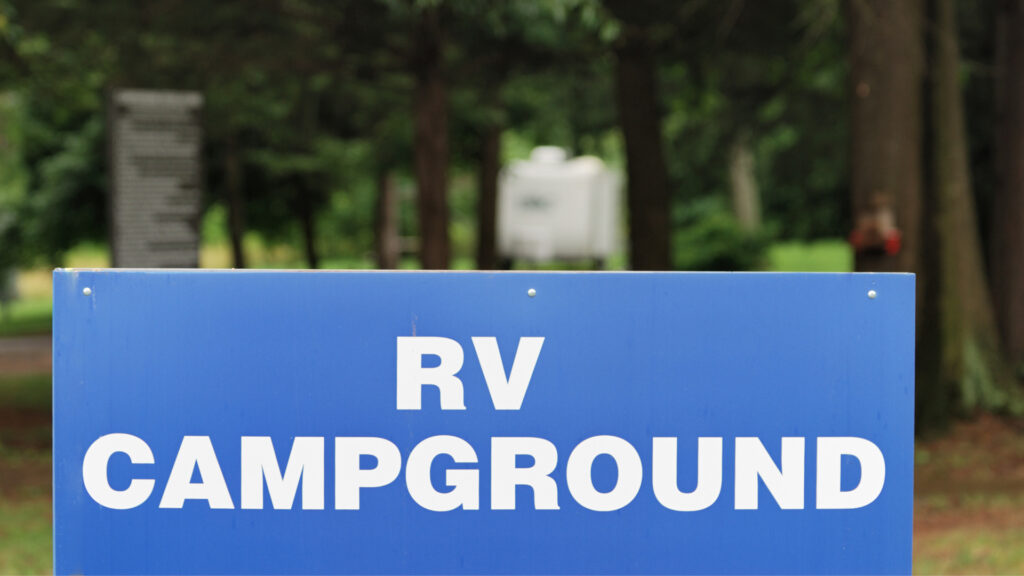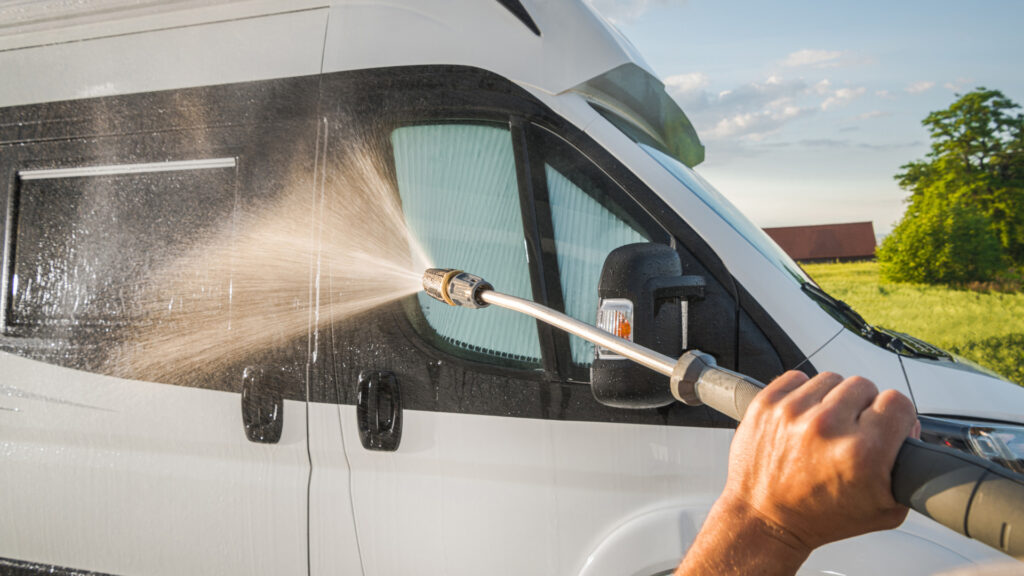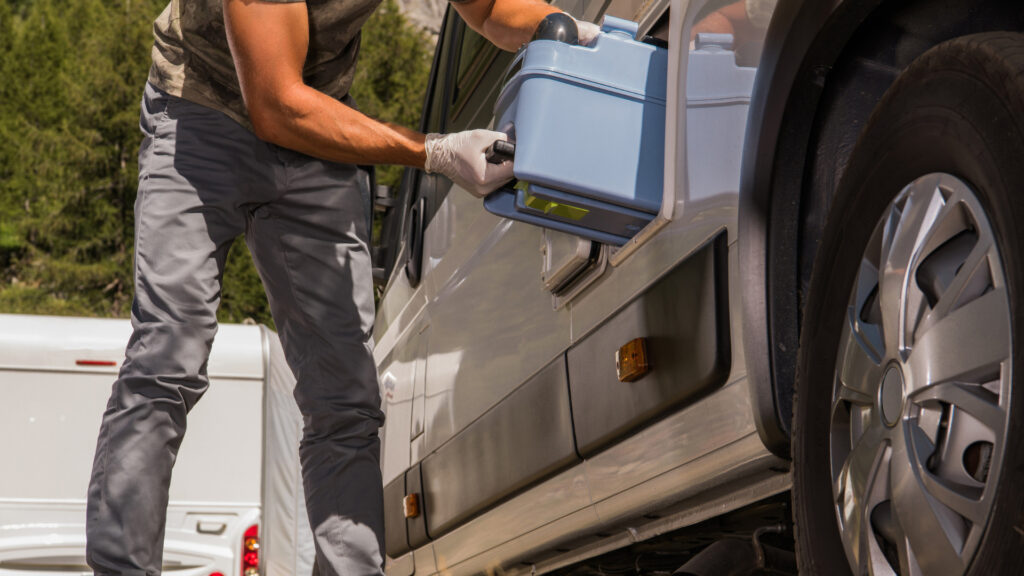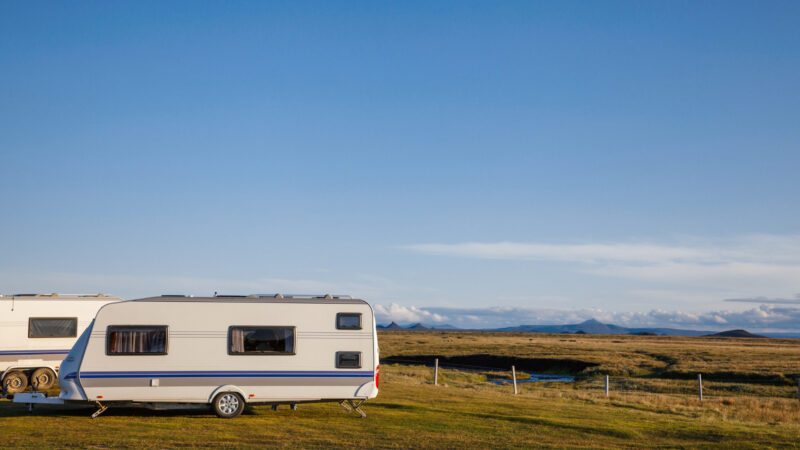Table of Contents Show
For better or worse, campgrounds can set their own rules. You may agree or disagree with them, but the rules are the rules. Management at some campgrounds is sometimes more than happy to escort you and your camper out if you don’t like them.
Unfortunately, sometimes they’ll kick you out for some pretty ridiculous reasons. One full-time RVer got the boot from a local campground. What gives? Let’s learn more!
Full-Time RVer Gets Kicked Out Because of Her Old RV
We recently heard a fellow full-time RVer say she and her son got kicked out of a campground. The reason? Her RV didn’t meet the standards of the campground.
Sadly, it took the manager two weeks to confront the issue. By this point, her boyfriend was out of town for work, and it was just her and her son. She had no idea how to move the camper to a new spot.
The manager was supposedly a family friend and felt bad for the couple’s situation. She claims the owner was initially uncomfortable with their rig but avoided confronting them. He waited until the day before her reservation expired to inform her of the issue.
She Now Questions RV Life
Luckily, the young woman and her son had family nearby that they could turn to for help. They got out of the situation and found a temporary solution until her boyfriend returned. However, the problem is far from over.
In addition to adding cleaning her RV to her to-do list, this situation unlocked some concerns for this traveler. She’s now questioning if she wants to embrace full-time RVing.
While it can be exciting and rewarding, it’s certainly not for everyone.

What Is the RV 10-Year Rule?
The RV 10-year rule is common, especially in higher-end RV parks. It prohibits RVs older than 10 years from staying in a park. On the other hand, your rig can be younger and still not make the cut.
Most RV parks and resorts want to maintain a certain aesthetic within their campground. As a result, they have certain expectations for the rigs they allow. Physical damage and excessive wear and tear are major no-nos in these situations.
Parks that enforce this rule will typically ask for the camper’s manufacturing year during the reservation process. Unfortunately, that wasn’t the case for the RVer in our situation.
Learn More: So why do most campgrounds Enforce the RV 10 Year Rule? Click the link to read on!
Are There Exceptions to the 10-Year Rule?
As we mentioned, private campgrounds and RV parks can make their own rules. Some managers will make exceptions on a case-by-case basis. They may allow guests with older rigs to stay for a night or two, but not for an extended period.
Some people take care of their vehicles better than others. As a result, you may find plenty of rigs older than 10 years but still in excellent condition. They may ask you to send current photos of the camper’s exterior.
Ironically, in this situation, what’s on the outside counts. They couldn’t care less how cute you’ve renovated the interior space. If the outside doesn’t meet their standard, you must stay elsewhere.
How to Keep Your RV Looking Like New
Luckily, can do several things to keep your RV looking like new. Let’s find out what you should do to avoid finding yourself in a similar situation.
Wash It Regularly
The most important thing you can do is wash your RV regularly. By keeping dirt off the various surfaces, you avoid corrosion and oxidation from occurring. How often you should clean your camper will depend on where you take it.
Most owners can get by bathing their rig every few months. You should do it more frequently if you camp in dusty or rugged environments.
Use a mild detergent made for campers. You can find various options at big box retailers like Walmart or online through Amazon. Use soft-bristle brushes and microfiber towels to avoid scratching the surfaces.

Use Wax and Polish After Washing
In addition to washing your camper, you should wax and polish it at least a couple of times a year. This helps to keep layers of protection between your RV and potentially harmful elements. Wax and polish can go a long way in keeping your vehicle looking like new.
However, depending on the size of your rig, this process can be time-consuming and physically demanding. Instead of a single all-day maintenance session, tackle this project a section at a time.
Breaking up the job allows you to give each area the attention it deserves. This is one task where it does no good to do a mediocre job.
- ADVANCED PROTECTION YEAR-ROUND - Innovative special polymers offer a shield against stains, UV damage, ensuring your RV...
- EASY APPLICATION ON ALL SURFACES - Effortlessly apply by hand or with a buffer to fiberglass, painted surfaces, and...
Protect Against Sun Damage
Harmful UV rays from the sun can do severe damage to an RV. It can cause seals to dry out and rot. Once this occurs, water can penetrate the structure and cause serious issues. We’ve seen severe cases of delamination and mold in trailers.
If possible, park your rig in a covered storage spot. These may be more expensive but offer more protection than outdoor storage. Not only does this storage option protect the seals, but also your decals and paint.
Over time, the sun can cause decals and paint to fade or crack. If a camper sits outside in the sun, it doesn’t take 10 years for this to occur. Depending on the intensity, it could begin to show damage in as little as three or four years.
Clean and Condition the Roof
In addition to cleaning the sides of your camper, you should also give the roof a good scrub. Most RVers do this at least twice a year, typically during the beginning and end of each camping season.
Use a soft-bristle brush and mild detergent. Start at the front and work your way towards the back. However, remember that the roof can be very slick when wet. Slipping could result in a 10-foot fall to the ground or severe damage to your roof.

Maintain Seals and Gaskets
One maintenance task that many RVers neglect is maintaining the seals and gaskets. The purpose of these items is to keep moisture and water out of your RV. It’s easy for failures to go unnoticed for several months. Unfortunately, by the time you catch the issue, it’s far too late.
Many warranties require owners to check their seals regularly. Some will require owners to inspect for cracks, peeling, or other issues every 30, 60, or 90 days. Failing to check and maintain them can result in denied warranty claims.
Keep in Mind: Keep your RV looking brand new with The Best RV Cleaner!
Do Preventive Maintenance
You must follow the recommended maintenance schedule for your RV. Preventative maintenance can feel annoying, but it can significantly reduce your chances of experiencing a serious issue.
Don’t forget to test your equipment, keep filters clean, and inspect your tires. One of the leading causes of damage to campers comes from tire blowouts. Keeping your tires at the proper tire pressure can help extend their life and minimize the risk of a major issue.
Blowouts can do a number on the aesthetics of your rig. They can also result in you spending thousands of dollars to repair your camper. Trust us; you don’t want to experience these situations.

Should You Worry About Getting Kicked Out of a Campground?
If you keep your RV in good condition, you generally have nothing to worry about. Most campgrounds in state or national parks don’t have vehicle age restrictions. Sticking to these types of campgrounds can help you avoid any issues.
In general, these rules are most common at RV parks. You likely have nothing to worry about if that’s not your camping style. If you enjoy RV parks and have an older rig, inquire about their policies beforehand. You want to avoid surprises during the check-in process.
Have you ever had issues with your old camper at a campground?
Last update on 2024-12-22 / Affiliate links / Images from Amazon Product Advertising API








I am sick of the 55 plus age rule. I’m 57 my fiance is 40 and most rv resorts deny us. No kids. No pets. Don’t smoke and drive a newmar diesel in perfect condition. I’m ready to sue.
When we reserve I always check those things on their park. If they are that picky I’m not their kind of person. Don’t worry. Just check the campground”s rules before considering a Reservation.
Now if they would enforce the same rules for the park grounds themselves!